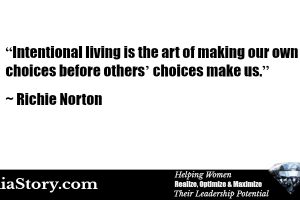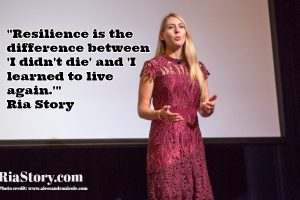I wake each morning and reach for my glasses before I even get out of bed. I’m extremely near-sighted. I cannot even see to read my computer screen without my glasses or contacts. Without them, driving would be impossible. Even walking around without glasses or contacts is hazardous to my health. I put my glasses on, and the world becomes clear. Everything comes into focus, and the world becomes beautiful. It’s not that everything changes, but my focus becomes clear. I see things as they truly are.
Our perception of inner-self is much like me looking at the world without glasses. How often we see and judge ourselves without a true focus on what we really look like inside.
Sometimes, we judge ourselves better than we truly are. We judge ourselves by our good intentions, rather than our actions. To avoid this, it’s important to be completely honest when reflecting on your inner values. Your internal values, or what you truly value in your heart, will determine your thoughts, words and actions.
Sometimes, we judge ourselves much harder than we should. We judge ourselves by the self-defeating thoughts that come creeping in. We carry around guilt or shame from something and allow it to spoil the rest of our lives. Guilt is negative feelings about one’s actions: “I made a mistake,” while shame is negative feelings about one’s self: “I am a mistake.”
Either extreme can be harmful, but today I want to focus on the latter perspective. It’s the one I had to overcome in order to learn to be resilient. As I’ve been writing in my new book, Beyond Bound and Broken, I’ve given much thought to resilience and how to find it. I call it the “Resilience Factor,” or, how far and how fast we can spring back after being knocked down.
As someone who faced over seven years of being sexually and emotionally abused, I know all about getting knocked down. I know all about the self-defeating thoughts, the self-loathing, the guilt, and the shame that can go through our heads sometimes. I know about looking in the mirror and not loving the me that looks back.
What I’ve learned is that self-love means loving all of me. Self-love means loving the me in the mirror, even the broken parts. Self-love means seeing me for who I am, including the flaws, and loving me anyway. Self-love means taking care of the me in the mirror. Not just physically, although that’s important, but also emotionally and spiritually.
Self-love means valuing ourselves. When we value ourselves, we will treasure our time, talents, thoughts, and abilities. When we value our time, talents, thoughts, and abilities, we won’t waste them, but use them wisely. Self-love is being a good steward of the gift of life.
Self-love means seeing ourselves as God sees us, imperfect, yet still a beautiful creature with a purpose for living. Self-love is seeing yourself with a clear focus. Accept the flaws that you cannot change, and work to improve on the things you can.
Ria is a motivational speaker, author, and professional coach with a passion to help others make the right choices today to reach their goals tomorrow. She triumphed over being sexually abused from age 12 – 19 by her father, and escaped by leaving home at 19 without a job, car, or even a high school diploma. Ria is an accomplished speaker, sharing her inspirational victim-to-victor story of overcoming adversity with humor and a down-to-earth style that connects with audiences. Contact Ria


